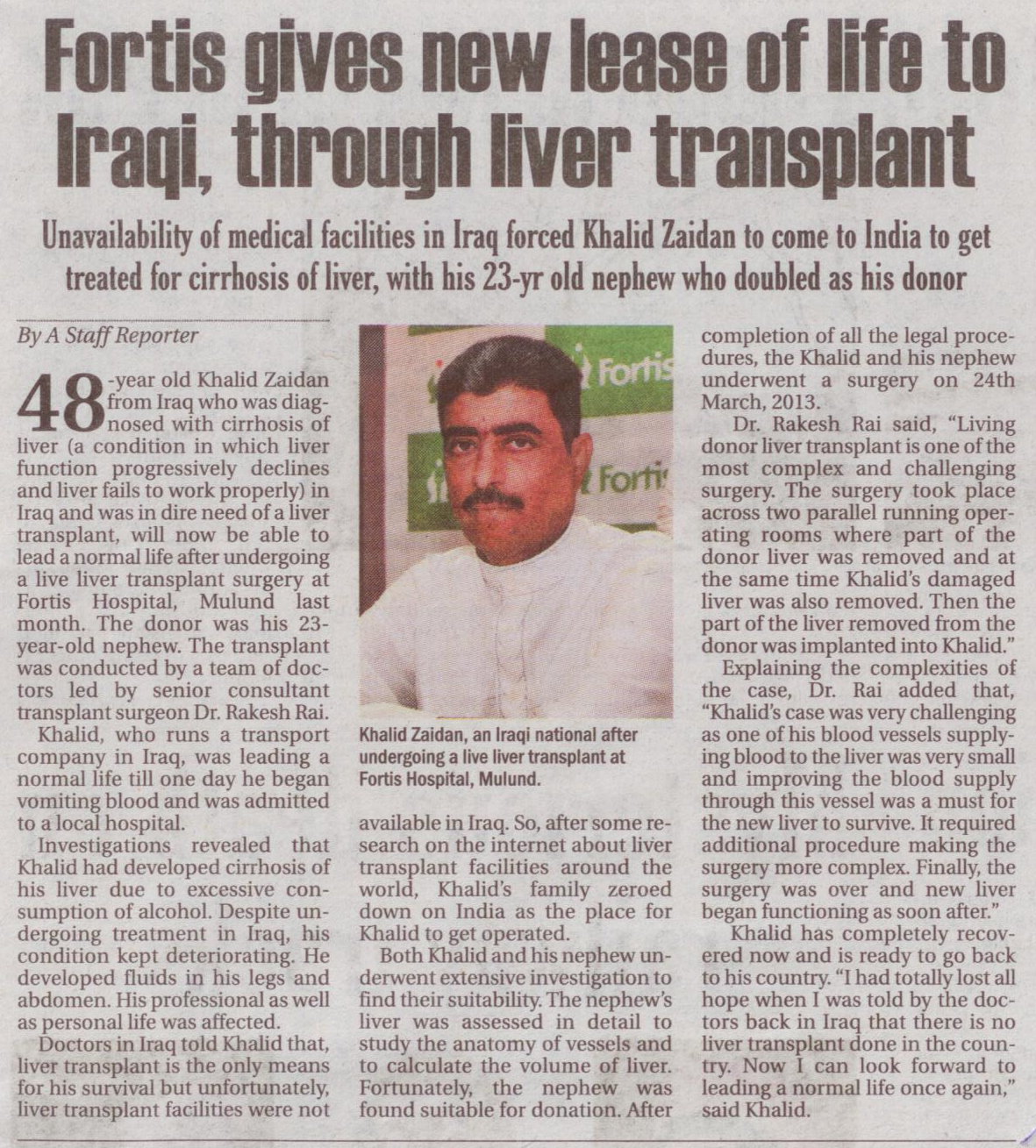Unavailability of medical facilities in Iraq forced Khalid Zaidan to come to India to get treated for cirrhosis of liver, with his 23-yr old nephew who doubled as his donor
48-year old Khalid Zaidan from Iraq who was diagnosed with cirrhosis of liver (a condition in which liver function progressively declines and liver fails to work properly) in Iraq and was in dire need of a liver transplant, will now be able to lead a normal life after undergoing a live liver transplant surgery at Fortis Hospital, Mulund last month. The donor was his 23- year-old nephew. The transplant was conducted by a team of doc- tors led by senior consultant transplant surgeon Dr. Rakesh Rai.
Khalid, who runs a transport company in Iraq, was leading a normal life till one day he began vomiting blood and was admitted to a local hospital.
Investigations revealed that Khalid had developed cirrhosis of his liver due to excessive consumption of alcohol. Despite under going treatment in Iraq, his condition kept deteriorating. He developed fluids in his legs and abdomen. His professional as well as personal life was affected.
Doctors in Iraq told Khalid that, liver transplant is the only means for his survival but unfortunately, liver transplant facilities were not completion of all the legal procedures, the Khalid and his nephew
available in Iraq. So, after some re- search on the internet about liver transplant facilities around the world, Khalid’s family zeroed down on India as the place for Khalid to get operated.
Both Khalid and his nephew underwent extensive investigation to find their suitability. The nephew’s liver was assessed in detail to study the anatomy of vessels and to calculate the volume of liver. Fortunately, the nephew was found suitable for donation. After underwent a surgery on 24th March, 2013.
Dr. Rakesh Rai said, “Living donor liver transplant is one of the most complex and challenging surgery. The surgery took place across two parallel running operating rooms where part of the donor liver was removed and at the same time Khalid’s damaged liver was also removed. Then the part of the liver removed from the donor was implanted into Khalid.”
Explaining the complexities of the case, Dr. Rai added that, “Khalid’s case was very challenging as one of his blood vessels supplying blood to the liver was very small and improving the blood supply through this vessel was a must for the new liver to survive. It required additional procedure making the surgery more complex. Finally, the surgery was over and new liver began functioning as soon after.”
Khalid has completely recovered now and is ready to go back to his country. “I had totally lost all hope when I was told by the doc- tors back in Iraq that there is no liver transplant done in the country. Now I can look forward to leading a normal life once again,” said Khalid.

